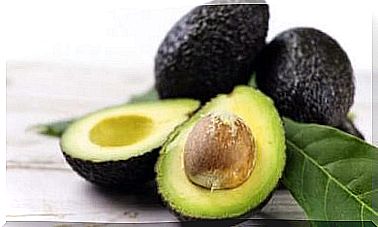Vegetarian Nutrition: A Beginner’s Guide

Vegetarian nutrition only involves the consumption of foods of plant origin. It includes both fresh and dried fruits, vegetables, legumes and cereals.
Next to the vegetarian diet there is the vegan one, which excludes any food of animal origin including eggs and dairy products. It is a diet model related to an alternative and healthier lifestyle.
Many people decide to become vegetarian in the name of the great health benefits of this eating style. Others, on the other hand, choose to follow this diet out of empathy and solidarity with the animal world or out of respect for the environment.
However, following a vegetarian diet may not be that simple. To ensure that all nutritional needs are met, it is essential to consume a wide variety of foods. In the following lines we offer you a beginner’s guide.
A beginner’s guide to a vegetarian diet
Start gradually

Stopping eating meat, fish and other animal products is not that easy. It is recommended to take it slow and make the transition little by little. At first, each new habit is difficult. It is important to respect the rhythms dictated by your body. As the days go by, it will get easier and easier.
The ideal is to make this change gradually. For example, eating a vegetarian diet for two or three days a week or for part of the day. However, if someone prefers to carry out the change in a radical way, it is also possible to adopt this solution. It all depends on personal preference.
In this second case, it’s important to be patient if you can’t follow the rules right away and avoid feeling guilty. Remember that no one is perfect and that it is always possible to start over the next day.
The social context
People who have decided to adopt a vegetarian diet often see their choice questioned by family and friends. It is important to explain your reasons enthusiastically and cheerfully, clearly expressing how you feel.
There is no reason to impose the same diet on others, otherwise we will generate conflict and hostility. Beyond that, when we receive an invitation, the ideal is to make things as simple as possible. We must avoid that this new lifestyle becomes a problem for those who will prepare the meal.
A good way to start the diet is to consume foods that can replace animal proteins. Examples include veggie burgers or vegetable meats.
Shopping at the supermarket when following a vegetarian diet

When you start following a vegetarian diet, shopping at the supermarket can become a real challenge. However, there are many foods that contain neither meat nor fish.
There is no reason to limit purchases to fruit and vegetables. Bread, pasta, rice, biscuits or potatoes are also great options for preparing delicious meals.
Another ingredient that should not be missing in the expense of a neo-vegetarian are dried fruit and cereals. In the event that the chosen diet is not vegan, eggs and dairy products are also available.
Canned legumes or soups are excellent allies, because they allow you to always have good and nutritious food at hand. They also simplify the preparation of meals, which is a great help in the beginning.
There are also delicious vegetarian options to substitute for meat. These are foods whose production has not caused any form of cruelty to animals, moreover, they are very good and easy to prepare. Among the various possibilities, for example, there are vegetarian nuggets that replace chicken nuggets, vegetarian seitan-based sausages and soy burgers.
A balanced diet
To make sure that the vegetarian diet as soon as it starts offers the body all the nutrients it needs for its proper functioning, it is sufficient to follow a few recommendations. The first is to follow a very varied diet, of all the colors of the rainbow.
On the other hand, if the new food system makes us tired and lacking in energy, perhaps we are not consuming enough calories. It is not enough to consume fruits and vegetables: you must also eat nuts, seeds, beans, lentils and healthy oils.
For all these reasons, following a vegetarian diet also involves some possible risks that must be evaluated. If you have any doubts, consult your doctor or nutritionist before starting a vegetarian diet.









